IIBF Event Report – May 2023: Thought Leadership on the Impact of AI on Business: Challenges and Opportunities
The panel discussion on the impact of Artificial Intelligence (AI) on business, its challenges, and opportunities aimed to shed light on various aspects of AI and its potential to revolutionize the business landscape in Indonesia. Distinguished thought leaders shared their perspective and insights into the definition of AI, its applications, and how it can address not only business efficiency but also significant global challenges like climate change, cancer, and the energy crisis.
The session began with an overview of AI, highlighting its ability to simulate human intelligence and perform tasks that typically require human cognition. According to Adhiguna Mahendra, Chief of AI at Nodeflux, “AI is a tool that brings efficiency to all areas of business as it tackles large amounts of data. It also has the potential to tackle pressing global issues like climate change, cancer, and the energy crisis.”
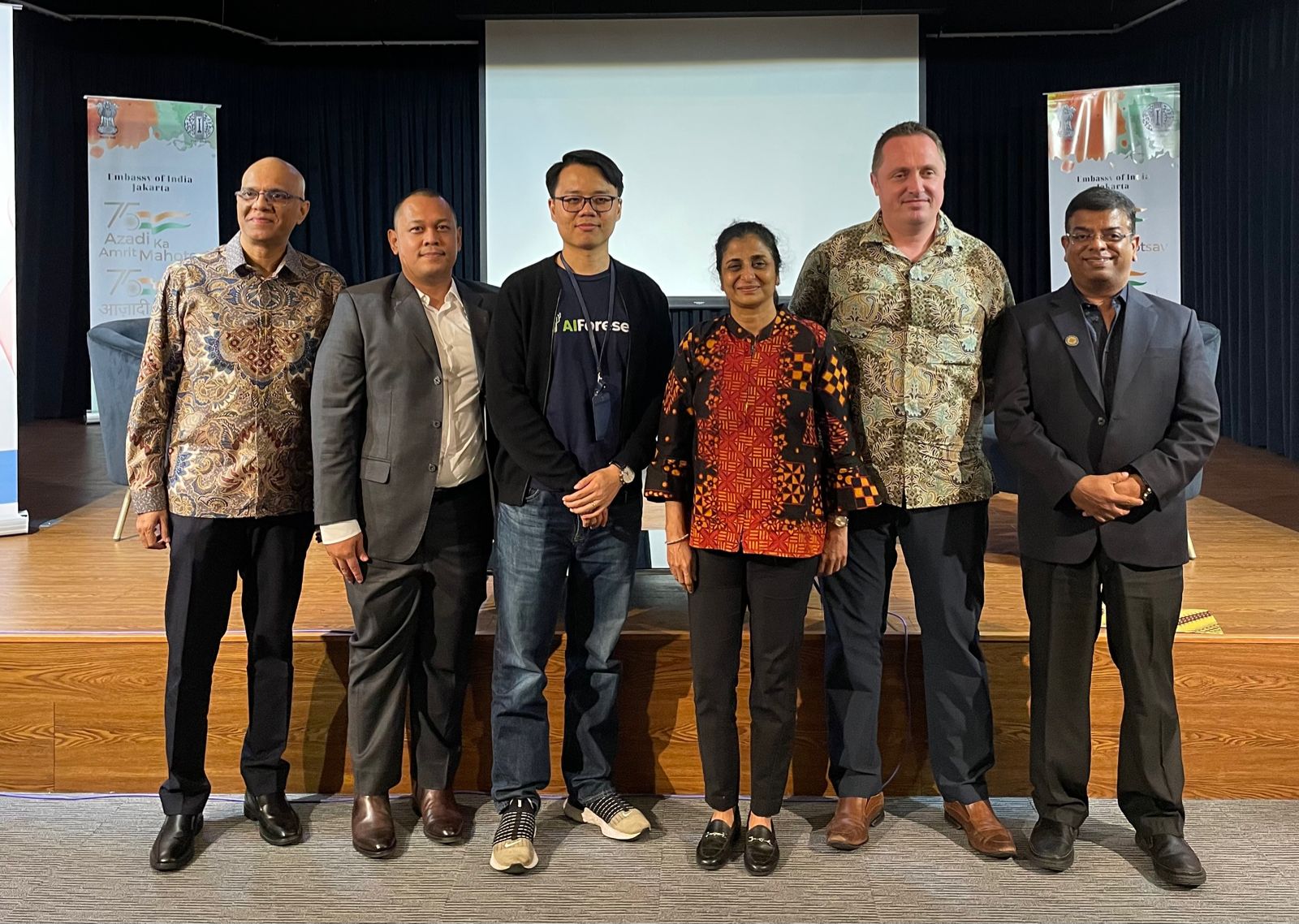
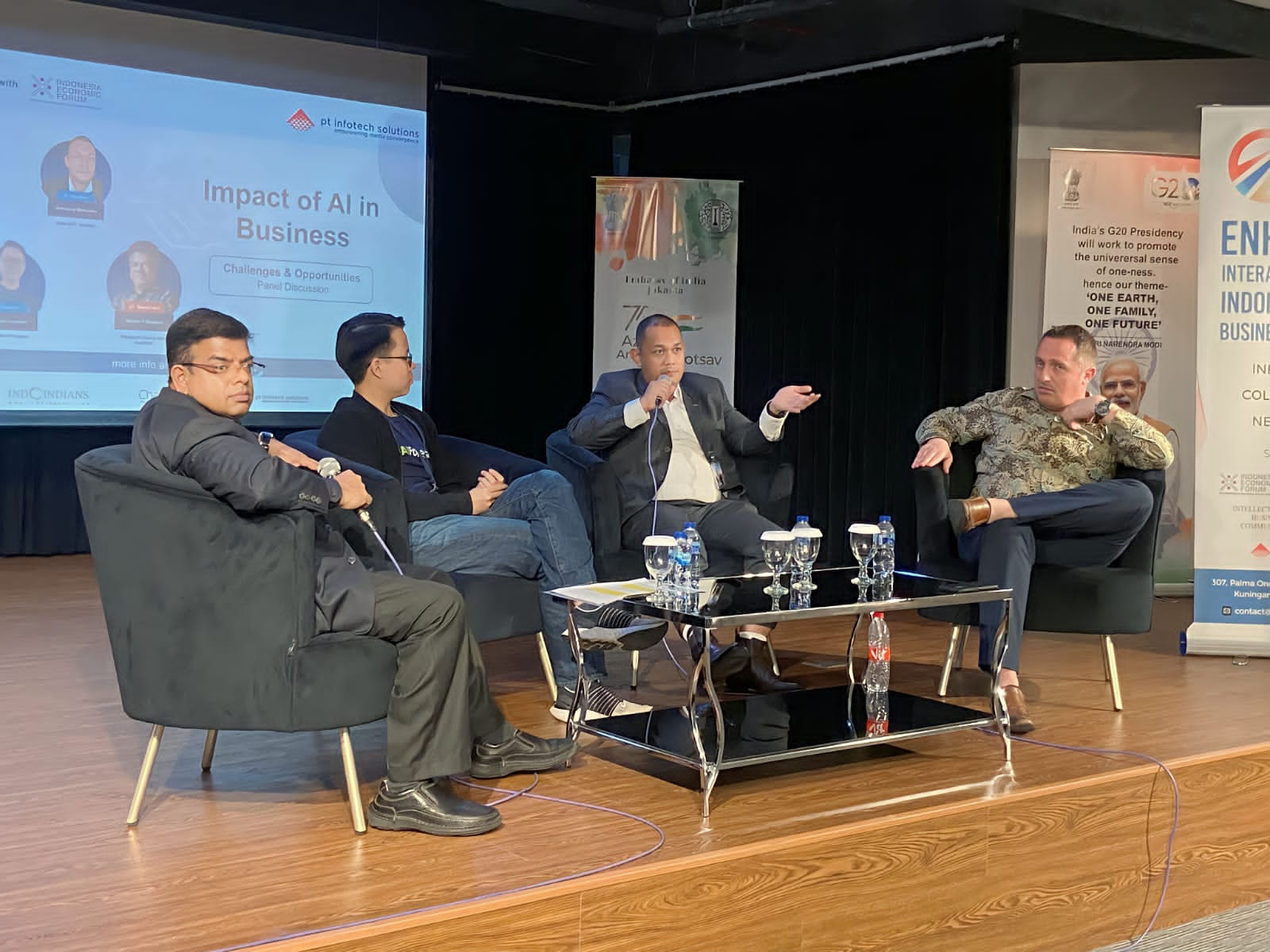
Thought Leaders:
- Adhiguna Mahendra, Chief of AI – Nodeflux
- Christian Limawan – cofounder AIForesee
- Martyn Terpilowski, President Director, PT Bhumi Varta Technology
- Sachin V Gopalan, President Director, Orbit Future Academy
emphasized the diverse applications of AI across industries such as healthcare, finance, and transportation. They discussed how AI is being used to optimize operations, enhance decision-making processes, and improve customer experiences.
Limawan highlighted the use of AI in Credit Risk Profiling Solutions for MSMEs, stating that “By leveraging AI algorithms, financial institutions can analyze vast amounts of data to assess creditworthiness more accurately. This enables a fairer evaluation of SME-related credit history, incorporating a wider range of variables and reducing bias in the credit scoring process.”
Terpilowski emphasized the integration of geospatial data with AI algorithms, enabling organizations to optimize logistics, streamline supply chain operations, and make data-driven decisions based on location-specific insights. Geospatial AI has the potential to revolutionize industries such as urban planning, transportation, and agriculture.
The speakers also acknowledged the challenges associated with AI, such as bias, privacy, and ethical concerns. They emphasized the importance of discussing and addressing these challenges to ensure the responsible and ethical development and deployment of AI.
During the discussion, audience members shared their experiences using AI tools. Examples included podcastle, an AI-powered content creation platform for podcasters, and midjourney for image generation.
The potential displacement of human workers with widespread adoption of AI and automation was also a topic of concern. The speakers addressed this by highlighting that while some jobs may become obsolete, technological advancements also create new job opportunities. Skills related to digital literacy, data analysis, programming, AI, and robotics are in increasing demand.
Supriya Kulkarni from the audience raised the issue of cultural impact and ethics in the use of AI tools. The panel agreed that addressing these challenges requires an inclusive approach to AI development, incorporating diverse perspectives, expertise, and data from different cultural contexts.
The panel discussion provided valuable insights into the broad range of applications and opportunities that AI presents in Indonesia. It fostered a deeper understanding of AI’s potential and the challenges that organizations may face in adopting and implementing AI solutions. The event served as an important platform for exchanging ideas and stimulating further exploration of AI’s impact on business.
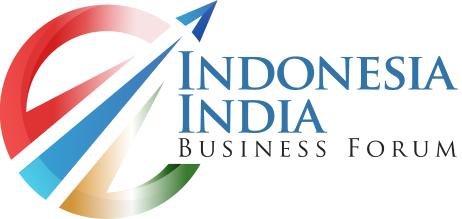
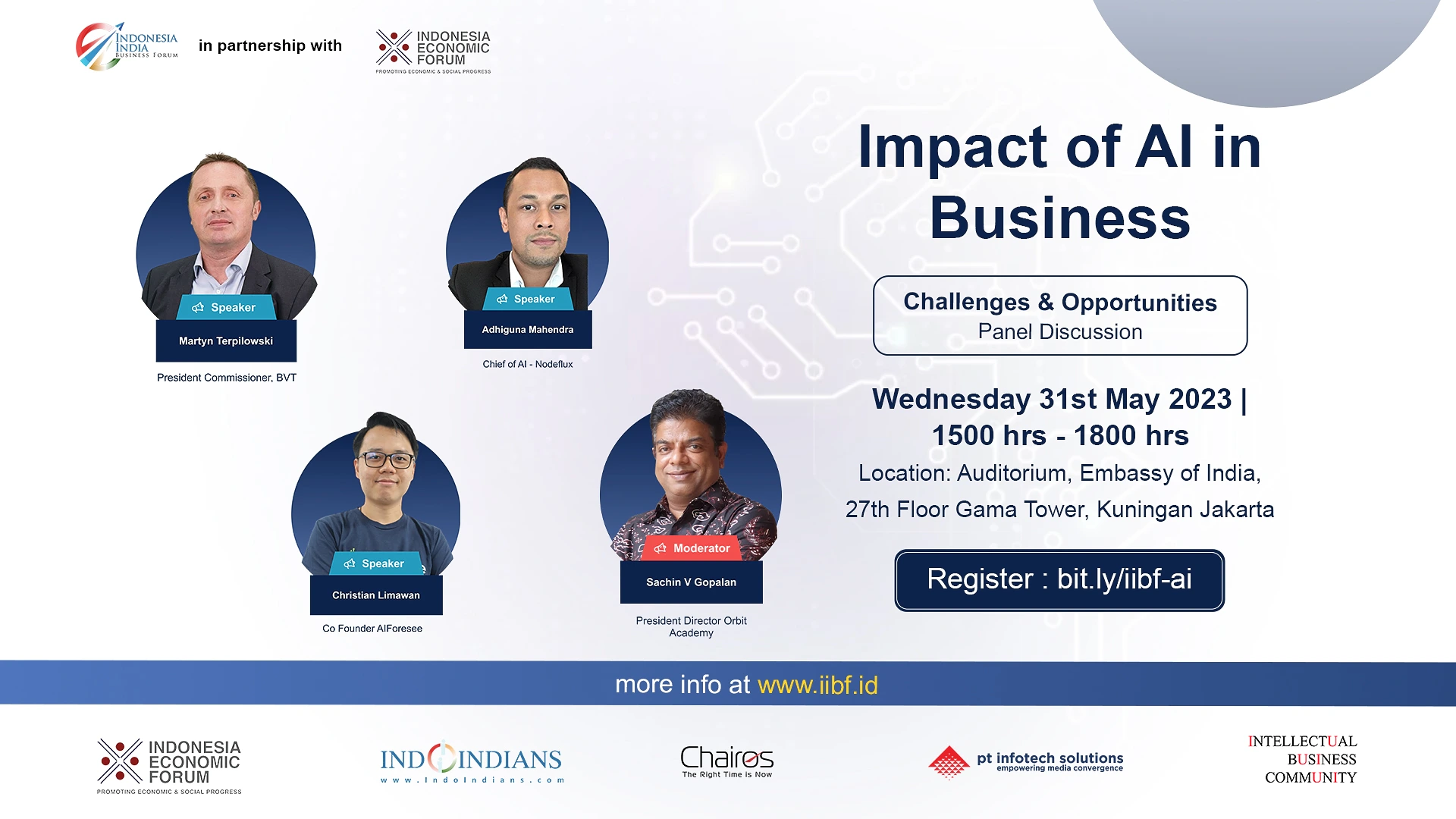
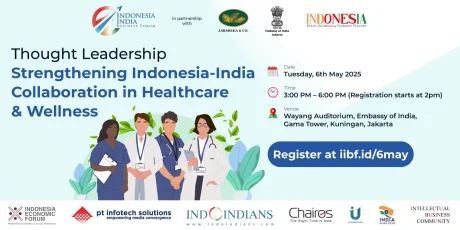

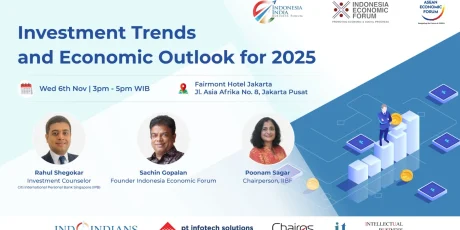
 @IIBF.id
@IIBF.id
 contact@iibf.id
contact@iibf.id
 082210008272
082210008272